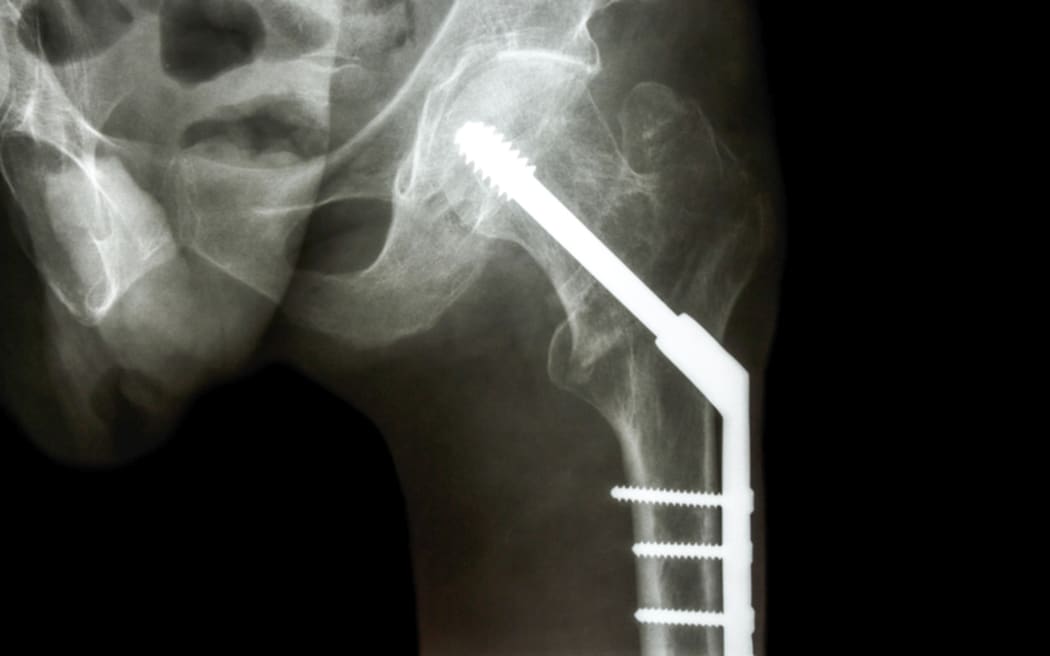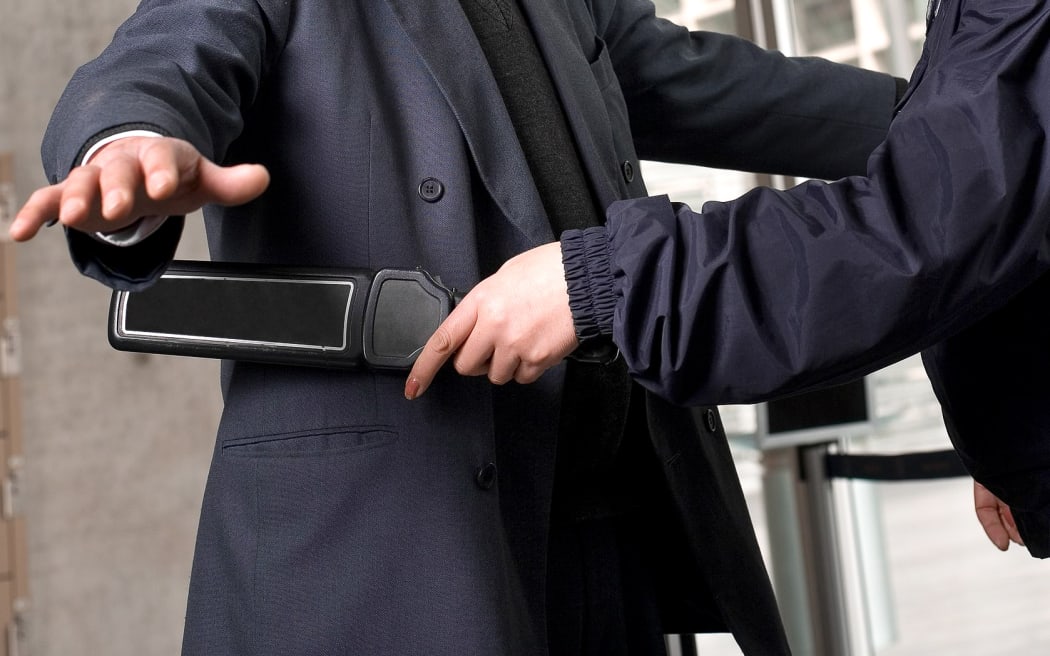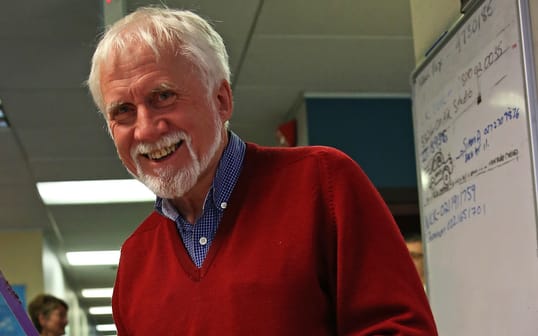More and more people are getting their hips and knees fixed, upgrading the old ones for artificial joints.
While it's great news for their health, it's a growing headache for those passengers going through airport security.

Photo: 123rf
Wellington orthopaedic surgeon Peter Devane will carry out scores of procedures in any one year.
Fifteen years of records compiled by the New Zealand Orthopaedic Association show more than 200,000 joints have been replaced, and the demand rises every year.
Mr Devane and his colleagues issue special cards to patients spelling out to security officials what metal implants are in their bodies.
Even so, those cards do not guarantee an easy journey to the departure gates.
"If you set a metal detector off and you wave a little card that says you've got a total joint replacement, almost everyone will be asked for verification of that rather than simply a wallet-sized card"
"The problem, you're talking across multiple jurisdictions. We all know that America is much harder to satisfy, and Los Angeles Airport is certainly no fun place to go through compared to travelling, for example, from Wellington to Auckland," Mr Devane said.
So why bother issuing those cards to patients?
'It's a very good question. I think it gives the patients some kind of justification of saying they've got the total joint rather than anyone turning up. And I certainly haven't, in the years that I've been in practice, heard of any circumstances of people misusing those cards.
"The cards were brought in in the, I guess, late 1980s, early 1990s, when aviation security wasn't quite as large a business as it is now. Now unfortunately, since 9/11, the cards have become very much outdated".
Waving the wand
For passengers with metal joints, they first face the regular walk-through detector, like everyone else, then perhaps a going-over with the hand-held wand.

Photo: 123rf
And if they're really unlucky, they're taken to a room for a private search, and might have to show their surgical scars.
Veteran unionist Ken Douglas was a patient of Peter Devane.
He's had his knees replaced, and is one of many people being stopped and put through extra security checks.
"It sets the place off like a high drama alert system. When you go through it the alarm goes and you're just told to stand aside. Sort of everybody looks, and you get used to that".
Mr Douglas said when he was stopped on one occasion at Hong Kong International Airport, there was fortunately someone in the queue who could explain why.
"I was coming through security, and Peter and his wife were travelling back to New Zealand... and the security officer said, 'What have you got here?'.
"And I said, 'it's all his fault,' so I pointed at Devane. And I thought, I've got more titanium in my body now than in my golf bag".
But Mr Douglas says he has no problem being in the security spotlight, if it means new joints and a safe flight.
'Not a positive experience'
At Radio New Zealand, rural news reporter Kevin Ikin has a new spring in his step. He's got a fresh pair of knees, too.
On the downside, he said, the airport security experience could be trying and "not a positive experience".

Radio New Zealand reporter Kevin Ikin. Photo: RNZ / Alexander Robertson
"You just want to go through with the rest of the queue, but setting off the alarm and then being told to go back, take off your shoes, for some reason, join a different queue, and then being pulled to one side, and have this wand thing scanning all over your body".
"Usually the people doing it are pretty polite, and that's fine, it's just having to go through the process, which is a bit annoying", he said.
Full body scanners could make life easier, but there is little appetite for those in New Zealand right now.
Bomb in the body?
International aviation security consultant Norman Shanks said officials had to balance the risk of a terrorist with a bomb in his or her body with that of inconvenience for some passengers.
"There are two schools of thought. Some say it's a serious problem, others who have carried out sufficient studies say that it isn't really a major problem, because the explosion would be contained by the body itself".
Mr Shanks said there was little that could be done to smooth the journey for travellers with artificial joints. But he did have one suggestion.
"It would be more beneficial if there was an international register where these surgeons were able to put on a database the people that they've treated so that that could be checked up".
"Now that doesn't exist. And for it to be created there would need to be a bit of an uprising by the majority of passengers," said Mr Shanks.
But the New Zealand Orthopaedic Association said that idea was unlikely to fly, mainly due to privacy issues.
According to the international Civil Aviation Organisation (ICAO), the screening of metal joints is being given scant attention.
"ICAO publishes an Aviation Security Manual (classified) and a Manual on Access to Air Travel by Persons with Disabilities which would apply in these circumstances, but neither contains specific provisions on artificial limbs in the context of passenger screening".
"And as ICAO is comprised of the State signatories to the Chicago Convention, it would be they who would eventually need to recommend for study and ultimately support (or not support) the type of database being proposed by Mr. Shanks. To-date they have not asked ICAO".
The view in Aotearoa
In New Zealand, aviation security officials appear to be more aware of what passengers with replacement joints have to go through.
They said in a statement: "Avsec [Aviation Security Service] advises all passengers with such implants to let aviation security officers at screening points know about their special circumstances before they go through the screening process".
"This will enable the officers on duty to take this into account and could lead to an alternate means of screening such as a physical pat-down, rather than going through a metal detector".
Avsec would consider any means of improving the screening process at airports that is in line with best practice as recommended by the International Civil Aviation Organisation."

